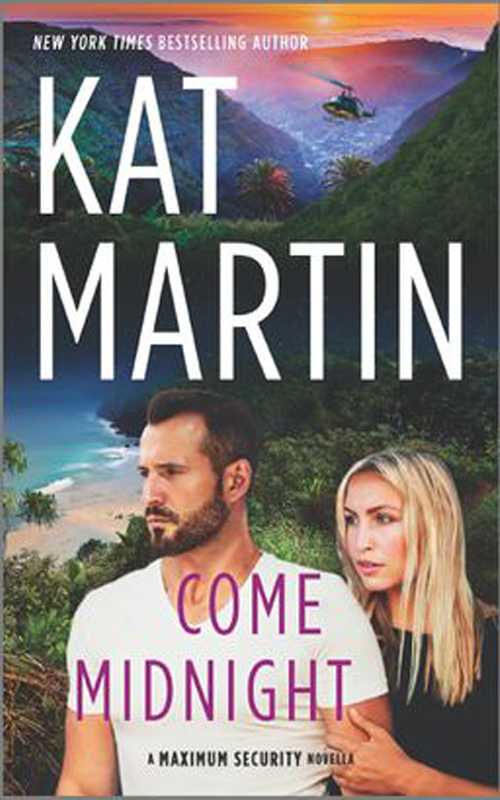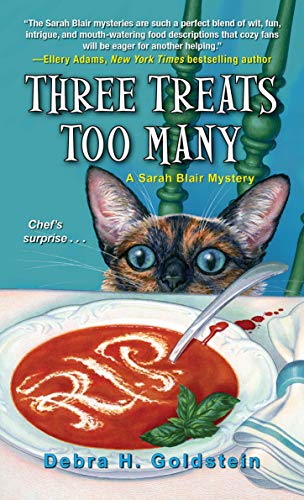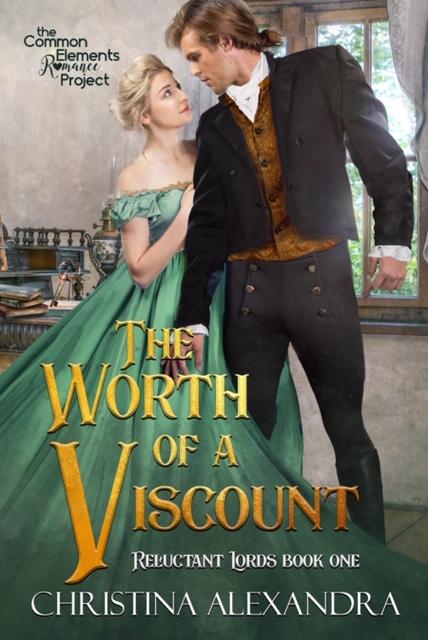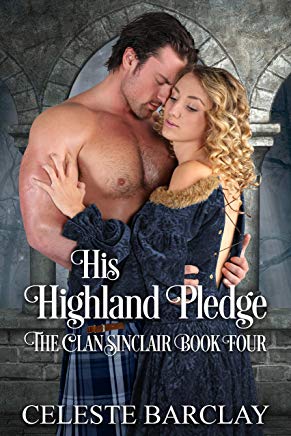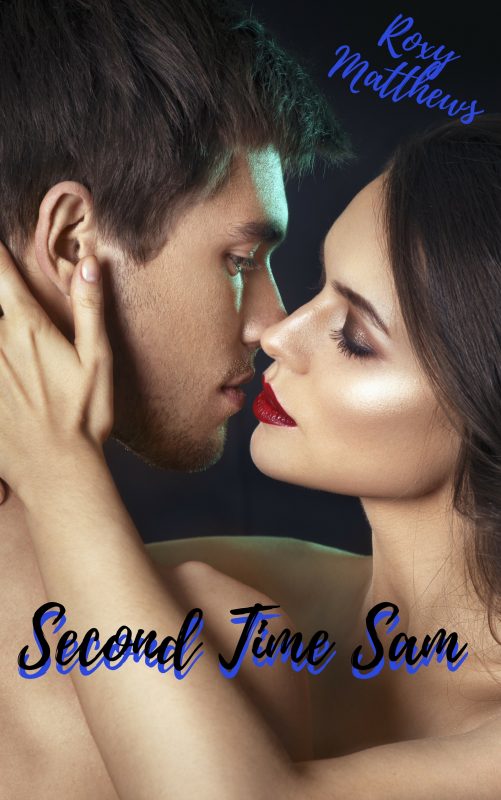Am I an Idiot? Working with a Freelance Editor
January 15, 2011 by A Slice of Orange in category Archives tagged as freelance editor, how to, writing processJanuary. We begin anew. We slough off our baggage and leave the past behind. Except when we don’t. Which brings us to the topic of freelance editors.
I have dragged mine into every New Year, every new project,* every new puddle of angst where I wallow in the knowledge that I will never write a decent book again. I have done this for 26 years. My freelance editor’s name is Jenny Jensen**. To her credit, she does not roll her eyes as she takes me by the scruff of the neck, shakes off the muck and and points me back to the computer. I use her because she is in my corner. I also use her because I sell more often when I do.
That fact alone should be enough for me to never question my association with Jenny, yet I do. I want to know why, after all these years, can’t I edit myself? Haven’t I learned anything from her? I had to know. Am I an author idiot?
Thankfully, the answer was no and Jenny had a couple of good reasons why I wasn’t:
Writing is a fast and furious process when it is going well. Grammar and spelling are not top of mind when an author is ‘in the zone’; words and ideas must flow freely.
Self-editing is prone to ‘blindness’. The author often sees no difference between her intent and the typed words. A good editor understands and respects the author’s words and voice while cleaning up the grammatical flaws that set the signals – signals that allow the reader to effortlessly navigate the story.
Some writers see punctuation as a bother. A well-punctuated manuscript will catch the eye of a publisher and so will one that is not punctuated well. Only one will sell.
Finally, some people are writers and others are editors. Like a writer with an instinct for story, an editor has an instinct for a pause, a rolling stop and when to quit. She knows when creativity and inspiration becomes awkward and interferes with story.
Knowing why I use a freelance editor usually leads to the question…
Can Only Rich Writers Afford a Freelance Editor?
Anyone who has been writing as long as I have can tell you that writing is not the road to riches. Most of us write while holding down other jobs and dealing with families. Some write for the pure love of it; most write in the hopes of making it their profession. So, how can the expense of a freelance editor be justified?
First an author must understand that books are business. New York publishers have bottom lines to meet, independently published authors want to sell their books, online retailers want to turn a profit. The way to determine if it is worth spending money on a freelance editor is to first define your writing objective.
If you want to attract an agent, a New York publisher or stand out in the indie market then, in my opinion, an editorial eye is a necessity. Prices range from the ridiculously cheap to the astronomically expensive. Some projects only need grammatical assistance and others continuity or story editing. Story editing is more expensive but, in my case, is critical. I write thrillers that rely on a trail of clues and red herrings and I cannot assess the effectiveness the webs I weave on my own.
In this roiling market, those who offer the cleanest, most professional product will be noticed. In the e-book market, those who present a flawed product will be called on the carpet instantly and very publicly. That is the worst kind of publicity and hard to recover from.
How Do I Work with a Freelance Editor?
The same way you work with a New York editor attached to a publisher. You respect one another’s expertise and perspective. You have discussions, not confrontations. You understand that while this is your book, her work is also held out to public scrutiny.
The Author:
Do not forward your first draft. Make it the best it can be before offering it for critique.
When the editor returns her comments/changes read them, set them aside and come back to them in 24 hours.
Look at your edited work with an objective eye. The editor is the first reader. If she questions something so will the person who buys your book.
Pay your bills, say your thank yous. Even if you don’t like editorial suggestions, the work has been done. This is a small community- and getting smaller all the time considering the internet – and an author’s reputation is easily damaged.
Ask questions. If something doesn’t make sense, talk it out. Most freelance editors offer a certain number of follow-ups. Be succinct. Be focused.
Do not expect continuity editing if you have paid strictly for grammar/spelling edits.
The Editor:Should be respectful of your work and have no genre preferences.
Should exhibit that she understands your ‘voice’.
Should clearly state their fees up front and be specific about what the service entails.
Should have an acceptable turn around time.
Bottom line, if you can afford it, freelance editing makes all the difference in your final product. If you can’t spend the money find the next best thing: a middle school English teacher to help out, a wonderful book on grammar or a friend who will be read your manuscript and be honest.
Rest assured, you are not an author idiot if you can’t self-edit. You are a writer. Other (wonderful) people are (thankfully) editors. Together, we make books that people want to read.
*23 traditionally published books, 2 indie e-books, 1 film script in development.
**Jenny resides at http://www.e-bookeditor.com/. Note the wonderful example on her home page of what a difference punctuation can make.
Visit http://wwwrebeccaforster.com/ for writing tips, reading recommendations, lots of pictures and a sneak peek at my latest book.
What if Scarlett O’Hara was a blonde… by Jina Bacarr
January 11, 2011 by A Slice of Orange in category Archives tagged as Adventures in Writing, blonde samurai, character, Confessions of a Podcast Goddess, Gone with the Wind, heroine, Margaret Mitchell, Scarlett, Scarlett O'Hara, writer's LifeI love historicals. Reading them, writing them.
And creating the perfect heroine. But is she a blonde, a brunette or a redhead? We writers wrestle with this question every time we put fingertips to keyboard. Sometimes the character is so clear in our minds, we know for certain she’s a natural blonde (and if she isn’t, well, we won’t tell–it’s up to the hero to see if the collar matches the cuffs).
Imagine if Scarlett O’Hara was a blonde…
Do you remember the vivid opening scene with Scarlett surrounded by the redheaded Tarleton twins? Her beautiful dark hair provided a rich halo around her face and provided a contrast against her white organdy dress with flounces and flounces of ruffles. The red belt cinching in her tiny waist was the perfect accent piece to complete her outfit.
Was this what Margaret Mitchell envisioned when she wrote “Gone With the Wind?â€
In a word, no.
Ms. Mitchell describes a “green flowered-muslin†dress, not the white one. Although in the film, Scarlett does show up at the Twelve Oaks BBQ in a similar dress (who can ever forget the scene in the film when Scarlett throws a porcelain bowl across the room not knowing Rhett is lying on the couch out of her pov and he pops up with the line: “Has the war started yet?†Pure classic romantic attraction).
Which brings me to the question: how important to you as a writer and/or reader is the heroine’s hair color?
Her clothes?
Do you enjoy reading descriptions of what she’s wearing? Do designer labels intrigue you or turn you off?
I must admit I enjoyed designing my heroine’s wardrobe in “The Blonde Samurai†about a Victorian heiress who weds a British lord then falls in love with a handsome samurai.
Here is what Katie O’Roarke as Lady Carlton wore at a grand dinner:
“…Which was why I chose the color red. A defiant color, bold and perfect. I relished how the velvet gown in crushed strawberry hugged my body, the small cap sleeves sliding down my bare shoulders while the tiered soft bustle swayed behind me, the long train sweeping over the muted Oriental carpets. A long row of pearl buttons gave off an opaline luster, racing down my back like a game of dominoes.”
Tell me what you think about whether or not a description of the heroine’s hair color and her wardrobe enrich the story for you.
Frankly, my dear reader, I do give a damn…
http://www.jinabacarr.com/
The Blonde Samurai is a 2010 Reviewers Choice Award nominee for Romantic Times
Starting Fresh by Kitty Bucholtz
January 9, 2011 by A Slice of Orange in category Archives tagged as It's Worth ItMy awesome husband gave me several books for Christmas. Yay! One of them is Becoming a Writer by Dorothea Brande. I can’t remember who turned me on to this book (something I read online in the last six months), but I am so glad. Normally, I wouldn’t be interested in a how-to book on writing that was published in 1934. I have the modern tendency to believe we have better ideas “now†than “then.â€
But this book is great! The chapters on “Harnessing the Unconscious†and “Writing on Schedule†made me feel like an undisciplined child being scolded by an auntie. I started the two exercises in those chapters today. Tomorrow’s reading is the chapter “The Source of Originality.†I’m very excited about this because of my work in my master’s degree. I’ve found that some of my work appears to be exciting and interesting and original, but I’m afraid I won’t be able to expand it enough to make an entire novel of exciting, interesting, original characters and ideas.
That sort of (normal) fear is part of the reason I love mornings, the first of the month, and January: they are all opportunities to start again. Or – to better express what I want to do with my writing – to start fresh.
What do you want to do this year that is new or fresh? What do you want to do that you’ve been wanting to do every year but still haven’t managed yet? Do you have a fresh approach you want to try?
Since this is a time to think about what’s working and what’s not working, I’ve been thinking about myself at other ages. As long as I can remember, I’ve been a “wait till the last minute†person with homework and things that were required of me, like chores. But things that I loved, that seemed more like fun than work, those things I did quickly, easily, eagerly. (I spent countless hours playing my saxophone in high school, usually without being told to go practice by my mother.)
I used to think I waited till the last minute to do homework because I was so smart that I could still get an A without spending more time. Now that I’m older I tend to believe that if I can do a good or great job quickly and easily, how much better can I do if I spend some time at it? But in my past experience, I only spend time on things I think are fun.
So you can see my conundrum if I tell myself that writing is my job and I must do it or go back to accounting. My writing tends to be more sporadic rather than disciplined – if I have to write, I don’t want to, but if I’m having fun, I think I should be doing something more important. This uneven approach yields writing quality that’s good, sometimes very good, but it’s not brilliant as often as I want it to be for a career novelist.
That is why I decided to read this book, Becoming a Writer. I know the technical aspects to writing, and I know the craft. What I don’t seem to know as well as I’d like is – me. What is going on in my unconscious? How can I relax and trust myself and find both self-discipline and self-confidence? I don’t know if Dorothea has the answers, but the chapters I have left to read suggest in their titles that there are some awesome “ah-ha†moments ahead. I’ll let you know what I find out. Or go buy or borrow the book yourself. (It’s got a $12.95 cover price, and is currently $5.95 on Amazon.)
I decided that I wanted to see if there are some things I can learn about myself that will help me in creating goals and plans that work better for me this year than in years past. With my usual optimism, I believe 2011 is going to be the best writing year yet! And I believe that believing it is half the battle. But I need to see if there are better ways to go about the work, ways that work better for me personally, ways to work with my natural self and not against myself. It’s a combination of faith and works together that will see me reach my goals.
If you’re interested in some new ways to plan out your work and your year, check out the online class I’m teaching starting next week – Going the Distance: Goal Setting and Time Management for Writers. We’ll be working through our own personal lists of what we want to get done and what needs to be done, and writing out a schedule of sorts to accomplish it with more peace and less stress. If you think this could help you start your new year off right, sign up now. Class starts Monday.
However you decide to make plans for 2011, make them now. You’ll accomplish more if you get even half of your goals accomplished than if you give yourself no goals at all.

Kitty Bucholtz is a writer and speaker, and a member of Romance Writers of America and Romance Writers of Australia. She co-founded Routines for Writers http://www.routinesforwriters.com/ a web site dedicated to helping writers write more. In 2011, Kitty will receive her Master of Arts degree in Creative Writing from University of Technology, Sydney.
Reading Resolutions
January 9, 2011 by A Slice of Orange in category ArchivesI’m giving up on all those resolutions about losing a few pounds, keeping in touch with people better, tidying my office / bedroom / kitchen, and instead sticking with resolutions that I might actually be able to keep. The one think I can guarantee I’ll do this year is read books. Lots of them. So I’m resolving in 2011 to read some of those books and authors I’ve always meant to but never got around to, and to re-read some whose delights I’ve all but forgotten.
So, on the first-time read list for this year are Moby Dick (yes, I know I should have read it!), a couple of Herman Wouk titles, since I so loved The Winds of War in 2010, anything by Deanne Gist, some more Jennifer Weiner… The new Susan Elizabeth Phillips book. I’m halfway through Freedom, by Jonathan Franzen, so that’s solid progress on my resolution already. The Last Will of Moira Leahy, by Therese Walsh. At least one YA novel by Julie Kagawa. I like to buy authors’ debut novels, so in 2011, that’ll mean buying books by Michelle Diener, Soraya Lane and Kylie Griffin. Skinny Dip, by Carl Hiaasen, and maybe his new book, Star Island, as well.
On the re-read list are Jane Eyre, Persuasion, Sense and Sensibility. Maybe War and Peace if I’m not overly daunted by the size of the thing.
Tell me what you’re planning to read this year – I’m always keen to hear your recommendations!




